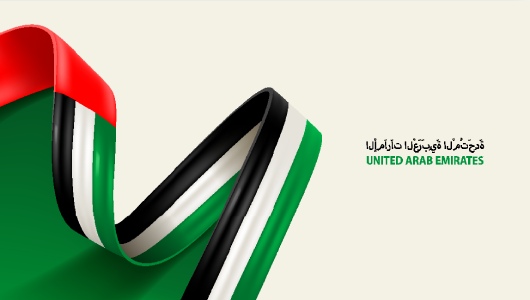-
The United Arab Emirates (UAE) is known for its rapid advancements in technology and innovation, and one area where it's making significant strides is in the adoption of blockchain technology. From government services to finance, healthcare, and beyond, the UAE is leveraging blockchain development services to enhance efficiency, transparency, and security across various sectors. In this comprehensive blog, we'll explore how the UAE is embracing blockchain and the impact it's having on the nation's development.
Understanding Blockchain Technology
Before delving into the UAE's use of blockchain, let's first grasp the fundamentals of this transformative technology. Blockchain is a decentralized and distributed ledger system that records transactions across multiple computers securely and transparently. Each block in the chain contains a cryptographic hash of the previous block, creating a tamper-resistant and immutable record of data. This technology eliminates the need for intermediaries, reduces the risk of fraud, and enhances trust among participants.
Blockchain Initiatives in the UAE Government
The UAE government has been proactive in embracing blockchain technology to streamline its services and improve governance. One notable initiative is the Emirates Blockchain Strategy 2021, launched in 2018 to transition 50% of government transactions to blockchain platforms by 2021. Under this strategy, various government entities have implemented blockchain solutions for processes such as document verification, land registry, business licensing, and digital identity management. These initiatives have led to cost savings, increased efficiency, and greater transparency in government operations.
Blockchain in the Financial Sector
In addition to government initiatives, the UAE's financial sector is also harnessing the potential of blockchain technology. The Dubai International Financial Centre (DIFC) has launched the "Blockchain Valley" initiative to create a blockchain ecosystem within its jurisdiction. This initiative aims to attract blockchain startups, foster innovation, and promote collaboration among stakeholders. Moreover, several banks in the UAE are exploring blockchain-based solutions for cross-border payments, trade finance, and digital asset management, leading to faster transactions, lower costs, and enhanced security.
Blockchain in Healthcare and Supply Chain Management
Blockchain is revolutionizing healthcare and supply chain management in the UAE, enabling greater transparency and traceability of products and services. Healthcare providers are exploring blockchain solutions for electronic health records (EHRs), medical data sharing, and drug traceability to improve patient care and safety. Similarly, companies in sectors such as logistics and retail are leveraging blockchain to track the movement of goods, verify product authenticity, and streamline supply chain operations. These initiatives enhance efficiency, reduce fraud, and ensure the integrity of data throughout the supply chain.
Challenges and Future Outlook
While the adoption of blockchain in the UAE presents numerous opportunities, it also comes with challenges such as regulatory compliance, interoperability, and cybersecurity risks. Addressing these challenges will require collaboration among government agencies, industry stakeholders, and technology providers to establish standards, frameworks, and best practices for blockchain implementation. Looking ahead, the future of blockchain in the UAE appears promising, with continued investment, innovation, and adoption expected to drive economic growth, enhance competitiveness, and position the nation as a global leader in blockchain technology.
Conclusion
The UAE's embrace of blockchain technology exemplifies its commitment to innovation and digital transformation. From government services to finance, healthcare, and supply chain management, blockchain is revolutionizing various sectors, leading to increased efficiency, transparency, and security. As the UAE continues to invest in blockchain initiatives and foster collaboration among stakeholders, it is poised to reap the benefits of this transformative technology and emerge as a global hub for blockchain innovation.
We are a blockchain development company based out of India, extending our services to blockchain enthusiasts in the UAE. Connect with our blockchain developers to explore more about blockchain development.

Our Offices
INDIA
Emaar Digital Greens, Sector 61,
Gurugram, Haryana
122011.
Welldone Tech Park,
Sector 48, Sohna road,
Gurugram, Haryana
122018.















